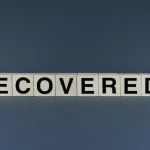A person who is addicted to drugs or alcohol is often required to go through a detoxification process as a crucial step in their journey to recovery.
Given that someone who is physically unwell struggles to confront any underlying mental health issues, the detoxification process plays a crucial part in enhancing the fight. It helps the patients be prepared to address the psychological features of their substance and alcohol addiction. This process is part of the recovery program.
What is Drug and Alcohol Detox?
In a nutshell, detoxification refers to a process by which the traces of alcohol and drugs are ejected from the body. This serves to ensure that the person is physically stable and ready to begin therapy.
Substance and alcohol addiction makes the body somewhat dependent on these addictions in their system. When these chemicals are gradually removed from the body, your brain adjusts to the unexpected drop. As a result, people begin experiencing unpleasant and negative symptoms known as withdrawal symptoms.
During detoxification, the goal is to minimize the negative impact of the withdrawal symptoms and make the process as comfortable and safe as it can get. One of the most effective forms of detox is medically assisted and conducted by trained experts.
Usually, this occurs in a specialist detox center or a recovery facility under the inspection of qualified doctors, nurses, and other healthcare experts. Attempting home detoxification on your own is rarely successful and you will likely experience severe withdrawal symptoms and eventually become demotivated by many failed attempts. This is unless you do it safely and under the guidance of an expert.
The Process of Drug and Alcohol Detox
Typically, the first stages of drug and alcohol Detoxification involve withdrawal symptoms, which could range from shaking, headaches, insomnia, among others. The process can be deadly in some instances, which necessitates the need for a detox program to help you through the process safely.
For alcohol withdrawal, you are likely to experience acute alcohol withdrawal as the body responds to no longer receiving the chemicals it is used to. Since alcohol is a depressant, your body will adjust to counteract the sedative effects. When you stop drinking, the body still compensates for sedation, but It’s absent, which in turn could cause overstimulation.
In other instances, you are bound to experience post-acute withdrawal symptoms too. These occur after the first symptoms of acute withdrawal have faded. They may include depression, fatigue, and chronic pain. These symptoms are thought to be a result of the changes that your brain is subjected to as well as the effects of chronic stress.
The withdrawal symptoms, however, don’t mean that the detoxification process is not doable. It follows a simple cause and with the help of a recovery expert, anyone can brace through.
But what goes into the stages of the treatment?
-
Treatment Initiation
Reaching out for help from a specialist alcohol and drug recovery program is the first step towards a successful treatment.
Regardless of whether you’re joining the program was voluntary or you were convinced by a loved one, your recovery journey always begins with a professional treatment program.
During the initial stages of your treatment, you’re likely to experience some ambivalent thoughts about shunning your drug of choice permanently and might be convinced that your alcohol or substance abuse problem isn’t as bad as anyone else’s.
Be cautious of this attitude. Attitude and denial make you the worst enemies as you begin your recovery process.
The main focus for the treatment specialist in this step is to help you decide to actively participate in the program and accept that abstinence is worth it. To help you accomplish this, your recovery counselor will help you:
- Understand the damaging effects of your addiction
- Explore your denial feelings with regards to your alcohol and substance abuse
- Help motivate you to want to recover
This is also the stage where your alcohol and drug use history is taken and documented. Thereafter, the counselor will introduce to you the recovery program, and work with you to develop a personalized program unique to you.
2. Early Abstinence
After making a sound decision and a commitment to see your treatment through, you will enter the next stage of rehab known as early abstinence. Early abstinence is typically a result of positive treatment outcomes from your drug addiction and alcohol use. It is one of the toughest stages due to the following factors:
- Consistent withdrawal symptoms
- Physical cravings
- Psychological dependence
- Relapse triggers
Some of the challenges experienced during this stage include lots of cravings, incessant feelings of wanting to drink, and dangerous situations that could send you into relapse.
Luckily, this is where your recovery program counselor will help you learn about coping and what you need to lead a sober life. What you learn in this stage will help see you throughout your recovery journey.
In early abstinence, you will mainly be taught about the physical and the psychological aspects of withdrawal, learning to identify alcohol use triggers, as well as how to cope with alcohol cravings without necessarily drinking.
You are encouraged to participate in healthy activities, find alternative behaviors that replace your cravings, indulge in self-help groups that provide support and information, as well as get rid of triggers that lead to cravings.
3. Sustaining Abstinence
After abstaining for approximately 3 months, you are moved into a stage that helps you maintain it. If perhaps, you began as an inpatient client, you will be enrolled into a follow-up phase on an outpatient basis.
The goal here is to help you maintain your sober state by avoiding relapse. As such, the emphasis is on the warning signs that could lead to a relapse and the potential risks that could lead you there.
The tools you learned in the early abstinence stage are the ones you will apply in this stage as well. This will enable you to truly live a liberating and sober lifestyle. It is here that you will discover that to have a quality future, you had better not slip back to abusing drugs and alcohol.
Therefore, you will develop new coping skills such as:
- Avoiding the substitution of addiction
- Managing anger
- Building healthy relationships in life
- Developing and leading a drug-free life
- Learning how to earn and manage money
- Exercising and eating well.
This stage will last for as long as it takes until you are eventually clean and sober, at which time the follow-up counseling will terminate.
-
Advanced Recovery
This is the final stage of your recovery program. Reaching here means that you have conquered your addiction and are finally free. In advanced recovery, everything you have learned during your journey is what you applied to lead a fulfilling life.
At this point, you should be able to create long-term goals, stick to consistent daily schedules, form social relationships with people who do not use or drink, or participate in activities that do not involve drug or alcohol use.
Consequently, you will find ways to reach beyond yourself in search of happiness and fulfillment – be it in religion, spirituality, community engagement, or social activism.
Implementing these strategies is not only helpful in ensuring that you are sober, but they also help you become a better father, mother, friend, brother, or sister. In a nutshell, you will become a productive member of society, and one who can inspire others to follow in their steps to live such a happy life.
Your journey to drug recovery is all about learning to live a happier and healthier life, and advanced recovery is where it ends unless you slip back to your old ways, which is highly unlikely at this point.
Can You Detox on Your Own?
Detoxification at home is highly discouraged. It is dangerous and there are high chances of failure. It also reduces the likelihood of someone trying to detox again.
That said, here are reasons why detoxing without supervision is not advised:
-
It is dangerous
As easy as detoxification sounds, symptoms such as hallucinations may make you react in a dangerous way. You could end up harming yourself, or worse still, hurting your loved ones.
Other symptoms such as seizures may lead to physical injuries, delirium tremens, and can cause death. Professional or medical supervision is recommended to keep you safe. They will also monitor your vitals and symptoms and take the necessary steps to ensure your health doesn’t spiral.
Medical attention also helps you reduce anxiety and panic when withdrawal symptoms set in. Knowing that someone is watching you and ensuring that your health is okay will give you the confidence to push through.
-
It is uncomfortable
Alcohol and drug detoxification can be incredibly unpleasant and uncomfortable. Medical intervention is necessary to keep you safe from the negative consequences that can get severe if not treated.
Some withdrawal symptoms require the use of special equipment, which, under specialist care, can be lessened by increasing comfort during recovery.
Simply put, a detox process makes a great difference both in its ability to help you get through the withdrawal and stabilize your mental state once you begin your other treatments.
-
Your detox process might fail
Most alcohol and drug detoxification processes that fail are the unsupervised ones. Their success rate, compared to medically supervised detox programs, is low.
The increased discomfort, the dangers involved, and the lack of social support are some of the reasons why home detoxification often fails. Having a support system, support from people going through the same predicament, and the love and connection you get from the medical experts increases your motivation.
This is particularly important because after getting through detox, your commitment to seeing your recovery through is increased — and so will you inch closer to sobriety.
-
Withdrawal will make you hate detoxification
Individuals who have experienced drug and alcohol experience note that it is one of the most difficult things to get through or anything they have had to endure. This is mostly true for unsupervised drug and alcohol detoxification.
Due to the discomfort and the unpleasant experience, people who have tried to detox from home before are highly unlikely to try it again, especially since they went through all that trouble just to gain nothing other than tremendous feelings of failure.
To avoid such painful experiences, it is important to consult a specialist who can give you the support you need, regardless of how challenging the recovery progress might get.
What Treatments are Used in Detoxification?
There are lots of treatments available for alcohol and drug detoxification. They all, however, depend on the nature of your addiction, how long you’ve been at it, and the withdrawal symptoms one experiences. Some of these medicines are therapeutic, others are medicinal.
Some common treatments include:
- Medication-assisted therapy
- Constant medical supervision
- Spiritual and faith-based therapy
- Psychotherapy
- Meditation
- Acamprosate
- Disfulfiram
- Naloxone
- Benzodiazepines
- Suboxone
- Methadone
- Clonidine
Begin Your Drug And Alcohol detox Journey Today!
Overcoming alcohol and drug abuse addiction is entirely possible at Rise Recovery Services. They have adult programs, adolescent programs, young adult programs, and interventions for all kinds of addictions including eating disorders.
They have specialists in place, always ready to help make your experience as smooth as possible. From the initial drug and alcohol detox to their recovery programs, every step of your journey is carefully considered and planned. During your stay with them, they also offer counseling services and personalized treatment options that can help you make the lifestyle change you need to live happy and healthy.
So, take the first step towards sobriety today! Larry Fritzlan’s staff is always ready to talk to you. Reach out for the best drug detox!



